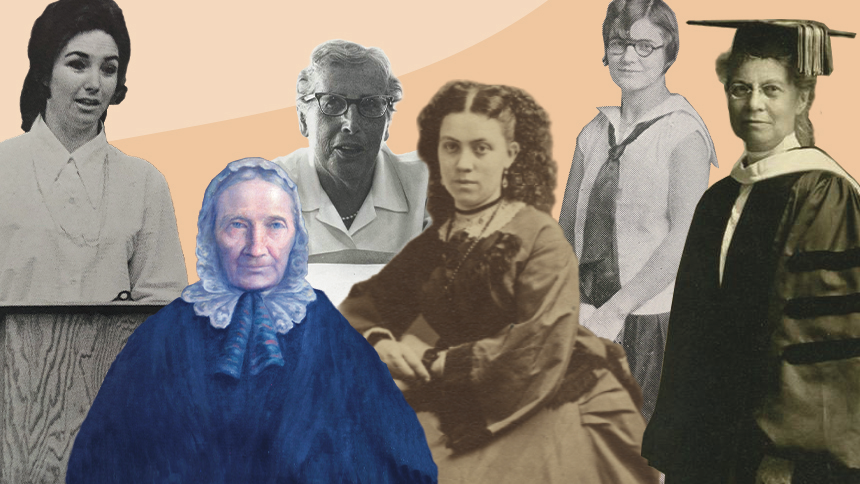Women Who Made Pacific: Lillian Kurahara & Yukie Katayama Sumoge
Neither Lillian Kurahara nor Yukie Katayama Sumoge cut a wide swath when they were students in Forest Grove in the early 1940s.
But, in 2007 they were awarded honorary degrees by the university because of the circumstances around their departures in 1942.
When President Franklin Roosevelt issued Executive Order 9066, which provided for secure military areas where Japanese-Americans were to be sequestered following the Dec. 7, 1941, attack on Pearl Harbor, notices went out calling for “all Japanese persons” to report to civil authorities.
Sumoge’s family, who lived in Parkdale, Ore., and Kurahara’s, who farmed fruit orchards in Hood River, Ore., were sent on trains to assembly centers, then to a detention center in Tule Lake, Calif. University records suggest that another student, Saka Yoneyama Noma, was also interned, but post-college records for her could not be found.
"I was thinking everything was wonderful, then kaboom."
—Lillian Kurahara
Kurahara, who still lives in Hood River at age 96, said her sophomore year at Pacific began promisingly. She was majoring in chemistry.
“It was such a wonderful start to the year,” she said. Her chemistry classes were taught by a Dr. Jones, and he chose her to be his assistant. Then came Roosevelt’s order, and her family called her home.
“I was thinking everything was wonderful, then kaboom,” she said.
Three days after the Kuraharas were shipped on a crowded train to the assembly center in Pinedale, Calif., her mother died. The rest of the family continued on to Tule Lake.
Nevertheless, Kurahara says she is not bitter, and she was concerned that this article would “glorify” her as a victim. She said her family was luckier than many: Their orchards were looked after by kindly neighbors, and the family was able to return to them later. The belongings they left behind suffered some breakage and loss, but she noted she also met the man she married during her detention. He was also interned at Tule Lake.
The war interrupted college for both Kurahara and Sumoge, who hoped to follow Madeline Yamane Bose, the first Japanese-American woman to graduate from Pacific, in 1941. She had a “lovely singing voice,” Kurahara said.

Kurahara was unable to attend the 2007 Commencement ceremony in which she and Sumoge were awarded honorary bachelor’s degrees, but Sumoge was there. “There’s no way I can express my gratitude and appreciation and pride that Pacific has honored me,” Sumoge said at the time. “I have no words to explain it. It was certainly the fulfillment of a dream.”
Kurahara said she was grateful, too. She said she encountered a great deal of kindness along the way, including gifts of furniture and books from her sisters in Kappa Delta Sorority. Nobody was angry with her, personally, she said.
“You couldn’t be bitter,” she said this summer. “Life is too short to bear grudges.”
But, she added, “I hope it doesn’t happen again.” ■
This story was part of a feature on The Women Who Made Pacific that first appeared in the Fall 2019 issue of Pacific magazine. For more stories, visit pacificu.edu/magazine.



